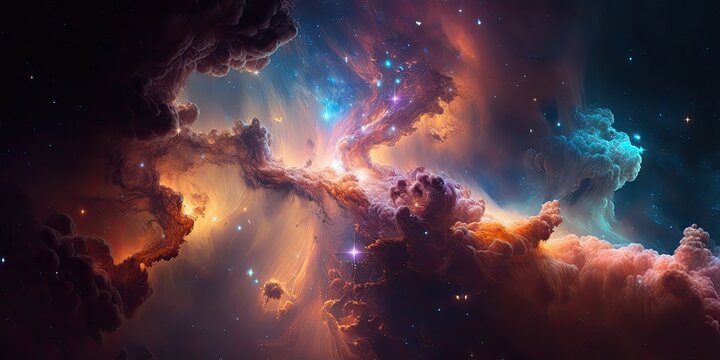Have you ever gazed up at the night sky and wondered about the mysteries of space? Space, the vast expanse beyond our planet Earth, is filled with wonders and secrets waiting to be discovered. In this article, we will delve into the fascinating world of space exploration and uncover some of the incredible facts about the universe.

Space: A Brief Overview
Space, also known as outer space, is the limitless, three-dimensional extent in which celestial bodies exist. It is a vacuum that contains a low density of particles, including gas, dust, and cosmic rays. The universe is composed of billions of galaxies, each containing millions of stars, planets, and other celestial objects. From the smallest asteroid to the largest black hole, space is filled with a mind-boggling array of phenomena that continue to astound scientists and astronomers alike.
What is the significance of space exploration?
Space exploration plays a crucial role in expanding our knowledge of the universe and pushing the boundaries of human understanding. By studying distant galaxies, planets, and other celestial bodies, scientists can gain valuable insights into the origins of the universe and the fundamental laws of physics. Moreover, space exploration also offers practical benefits, such as the development of new technologies, the discovery of valuable resources, and the potential for future colonization of other planets.
The wonders of the universe

- Black Holes: One of the most enigmatic phenomena in space, black holes are regions of spacetime where gravity is so strong that nothing, not even light, can escape. These cosmic giants can form when massive stars collapse under their own gravity, creating a gravitational pull so intense that even time itself is warped.
- Supernovae: Supernovae are powerful explosions that occur at the end of a star’s life cycle, releasing more energy in a few weeks than the sun will emit in its entire lifetime. These spectacular events are responsible for creating heavy elements, such as gold and silver, that are essential for the formation of planets and life.
- Exoplanets: In recent years, astronomers have discovered thousands of exoplanets orbiting other stars in our galaxy. These distant worlds hold the potential for hosting life and provide valuable insights into the diversity of planetary systems beyond our own.
- Dark Matter and Dark Energy: Despite making up the majority of the universe, dark matter and dark energy remain mysterious and elusive. These invisible substances have a profound impact on the structure and evolution of the universe, yet their true nature has yet to be fully understood.
Conclusion

In conclusion, space is a vast and wondrous frontier that continues to captivate the imagination of scientists and stargazers alike. From the dazzling beauty of distant galaxies to the enigmatic mysteries of black holes and dark matter, the universe is a treasure trove of discovery waiting to be explored. By embracing the challenges of space exploration, we can unlock the secrets of the cosmos and pave the way for a brighter future for humanity.
